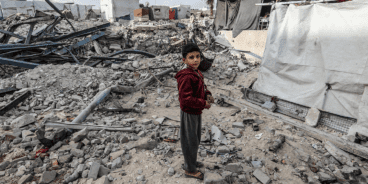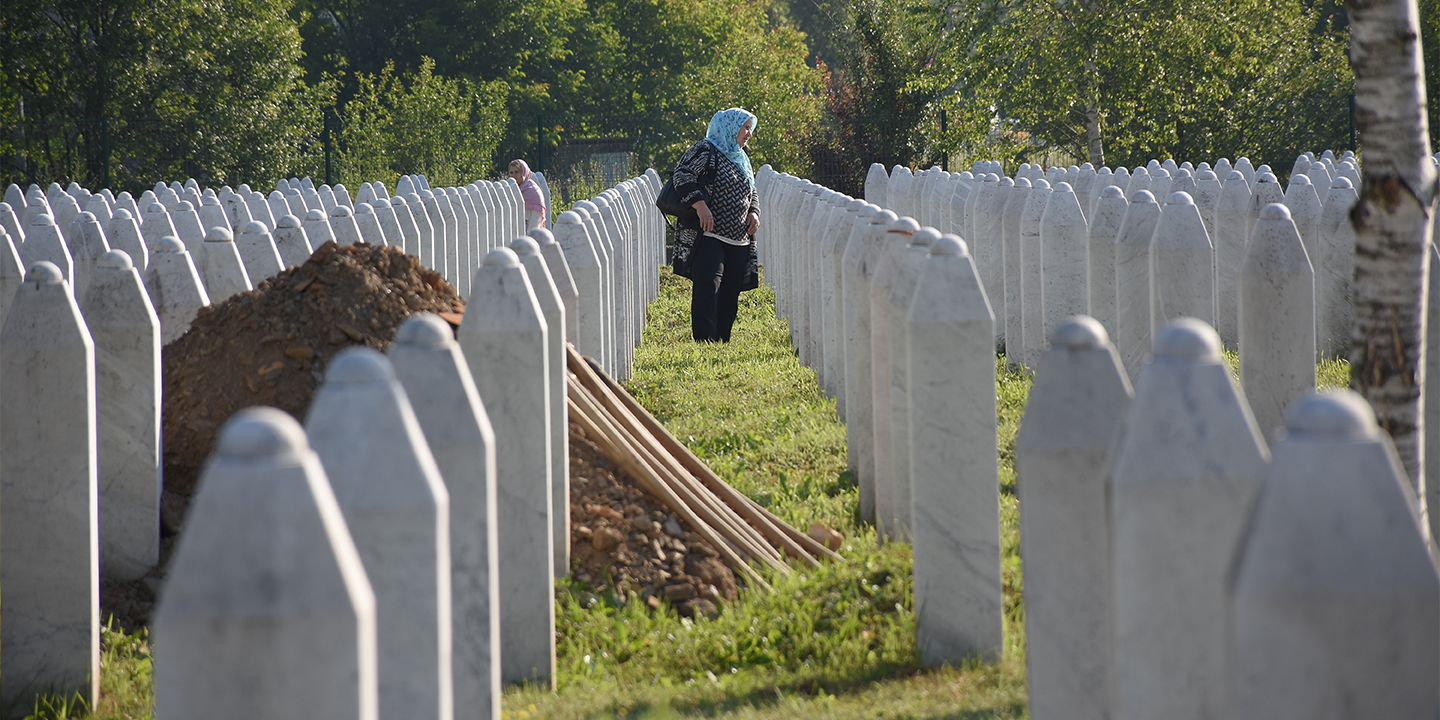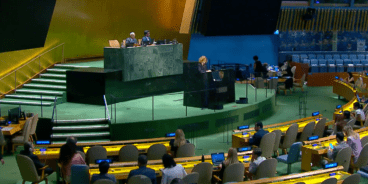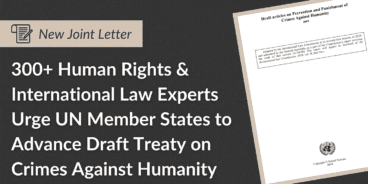

Statement Welcoming the Designation of 11 July as the International Day of Commemoration for the Srebrenica Genocide
The Global Centre for the Responsibility to Protect welcomes today’s decision by the United Nations General Assembly to designate 11 July as the International Day of Reflection and Commemoration of the 1995 Genocide in Srebrenica to be observed annually. Memorialization and commemoration of genocide has immense value in providing recognition, recourse and healing to victims, survivors, their families and their communities and is thus an essential part of atrocity prevention. The international community has a shared responsibility to preserve the memory of the victims and survivors of these atrocities and ensure that the past is never forgotten.
Next year marks the 30th anniversary of the genocide in Srebrenica, where approximately 8,000 Bosniak men and boys were systematically murdered by the Bosnian Serb Army of Republika Srpska. More than 25,000 civilians were also forcibly displaced from the area as Serb forces carried out a campaign of ethnic cleansing. Almost 30 years after the genocide in Srebrenica, we are once again witnessing the reemergence of revanchist nationalism, extreme xenophobia and hate speech across various parts of the world, including in the Balkans.
Learning from the past is crucial to our collective understanding of how the international community should uphold its responsibility to protect populations today, and commemoration is an integral part of the ongoing struggle for truth, reconciliation and non-recurrence. It was for this reason that the Global Centre encouraged member states to support the resolution and utilize this International Day of Commemoration to reflect on lessons of the past and to ensure that future generations develop the knowledge and skills to understand the early warning signs of atrocities and how to effectively confront them.
The adoption of the principle of the Responsibility to Protect at the 2005 UN World Summit was a result of painful lessons learned from the failure to prevent genocide in Srebrenica, among other situations. While the international community has undertaken various initiatives to uphold this commitment in the past nineteen years, the promise of halting atrocity crimes once and for all remains unfulfilled. In recent years, we have witnessed a pattern of state and non-state actors acting with blatant and systematic disregard for international humanitarian and human rights law, the Genocide Convention and other norms created to safeguard humanity. Consequently, civilian populations are facing the brunt of these abuses, including in Gaza, Sudan, Myanmar (Burma), Ukraine and elsewhere. The human suffering caused by these setbacks and failures compels us to redouble our efforts to prevent, protect and generate the will to respond more effectively.
Today, in honor of the victims of Srebrenica, the Global Centre commends all states who supported this important resolution as a way to recommit to upholding the international community’s enduring moral and political responsibility to protect the world’s most vulnerable populations. This solemn responsibility must be upheld with consistency, courage and without exception.
Related Content


Summary of the 2024 UN General Assembly Plenary Meeting on the Responsibility to Protect
